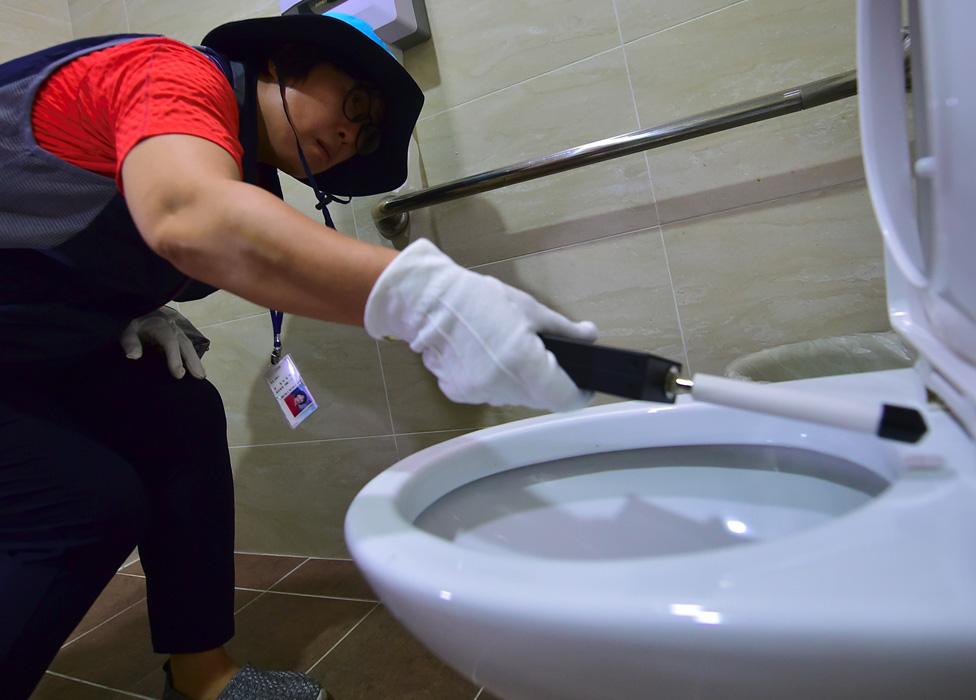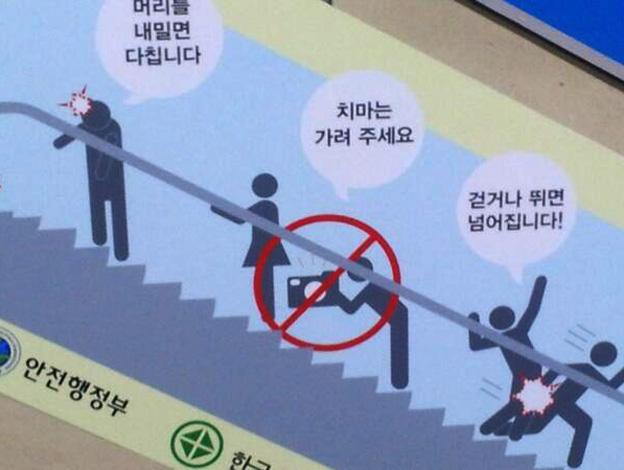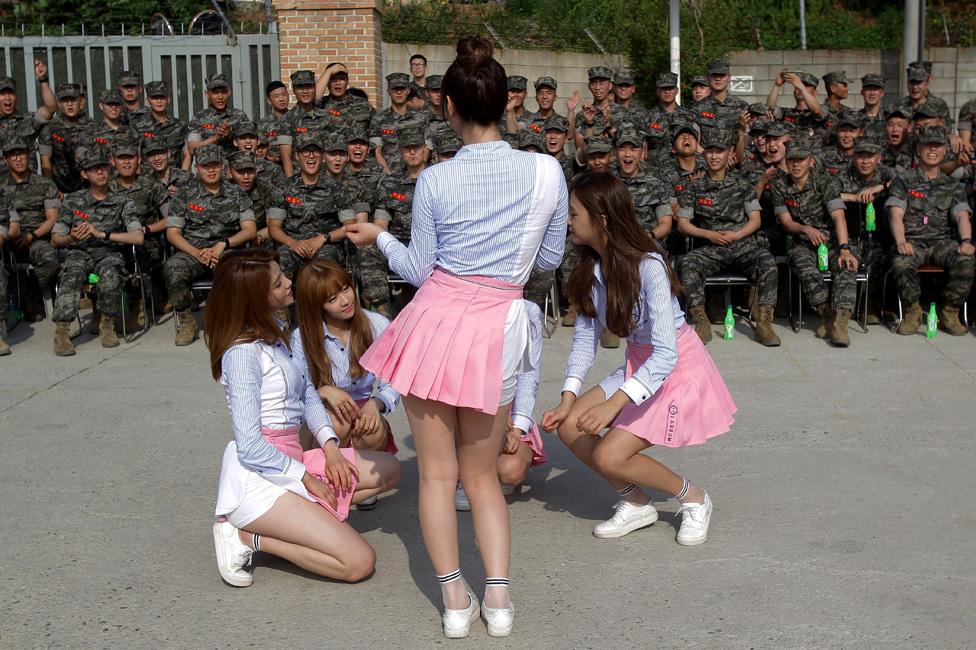Does Korea have a problem with hidden cameras?
- Published

A member of the Seoul squad that checks women's toilets for hidden cameras
Pornography exists the world over, but do men go to greater lengths in Korea than elsewhere to take secret photographs of women? The BBC's Seoul correspondent, Stephen Evans, investigates.
The other day I just typed into the search box the word for a very obscure term in music. I'm learning the guitar and I wanted to know what acciaccatura* meant.
What it doesn't mean is what popped up, namely a very hard-core Korean pornography site - which is odd in a country where pornography is illegal.
It illustrates, to my mind, some hypocrisy about sex. Pornography, like prostitution, is illegal, but available. The authorities constantly close down websites only for similar ones to pop up, often with obscure names for those in the know.
It is a constant cat-and-mouse game. In April, the police in Seoul succeeded in shutting down a server in Holland that offered porn to Korean users. It had switched there from the United States, having been shut down there too.
Women in Seoul talk about their anxieties and their anger over secret photographs
Illegal, porn may be, but highly sought after it also is (though maybe this double-standard of strong disapproval plus strong demand is not uncommon around the world).
Indeed, there's an industry in pornography provided for the web by hidden cameras in ladies' toilets, incredible though that may seem and as unattractive as that may sound.
The authorities do try to combat it. There's an official squad in Seoul which searches toilets for hidden cameras. In the southern city of Busan over the summer, police were told to look out for men with cameras acting suspiciously. Local media reported that officers used metal detectors in women's changing rooms to find hidden cameras.

Find out more
From Our Own Correspondent has insight and analysis from BBC journalists, correspondents and writers from around the world
Listen on iPlayer or get the podcast
You can also listen on the BBC World Service - or on Radio 4 on Saturdays at 11:30

Manufacturers co-operate by installing an audible shutter-click on phone cameras to deter the taking of pictures surreptitiously up skirts.
So serious is this problem that the government printed posters of a woman on an escalator with a man behind her taking a low photo. The caption said: "Please cover your skirt."
This generated a row. Women said the poster placed the blame on them. It implied that if only they didn't wear short skirts, this wouldn't happen.
The Ministry of Administration conceded the point, saying it had only intended "to make people aware that it is illegal to take up-skirt pictures, but the accompanying text was unwisely chosen". Accordingly, the wording was changed so the caption read bluntly: "No pictures allowed".

The warning on the escalator
There was, incidentally, a mini-storm when men told newspapers about the humiliation of having women in front of them on the escalator cover their legs. They complained that they were being treated like perverts when they were in fact innocent.
The Ministry of Gender Equality, as its name implies, promotes equality - though last year found itself in conflict with the Ministry of Labour, when the latter suggested that job seekers, presumably female ones, might consider plastic surgery to improve their chances. The Ministry of Labour back-tracked furiously, saying an intern had written the advice.
Things are changing, particularly as more women, from the president down, have careers. Recent figures indicated that the proportion of women in their twenties who work is now slightly higher than the proportion of men in their twenties. But while women increasingly expect equality, old male attitudes linger, just as they do in other countries.
And Korean marketers do think sex sells. Some members of Korean girl bands, for example, are only in their early teens but they exude sexuality in their clothes and the gestures on stage. It's called the "Lolita concept" in the South Korean media.

K-pop girl group Laboum perform for cheering marines
People who complain are accused of prudery. Men are told that they must be perverted to have noticed.
I went to a tech show here the other day, full of gizmos and geeks. And, I think, the odd perv (very odd, he seemed to me). I watched a sleazy looking man, who frankly needed a good wash, going round with his camera taking pictures of the leggy women in tight skirts and blouses whom companies here feel they need just in order to sell a gadget.
This particular seedy man was so intrusive - getting the powerless woman to turn her profile for the camera - that I felt I ought to have intervened with at least a word of disapproval, because the victim was an employee who might fear losing her job if she offended the public. In the end, I said nothing. Shame on me.
Prosperity is changing expectations, I think, but some men still expect women to be adornments, and resent their aspirations.
Families share small flats, all sleeping in the same room with children, so sexual frustration is not unknown - it's partly why there are so-called Love Hotels where even married couples rent rooms.
When I first flew on Korean Air, I was amazed to hear a pre-flight announcement warning that sexual harassment of cabin attendants was contrary to aviation law. It was an attempt to protect the glamorous female staff from the octopus hands of businessmen.
If they have to be told, there is, I think, some way to go.
* An acciaccatura is a grace note performed as quickly as possible before an essential note of a melody
Join the conversation - find us on Facebook, external, Instagram, external, Snapchat , externaland Twitter, external.